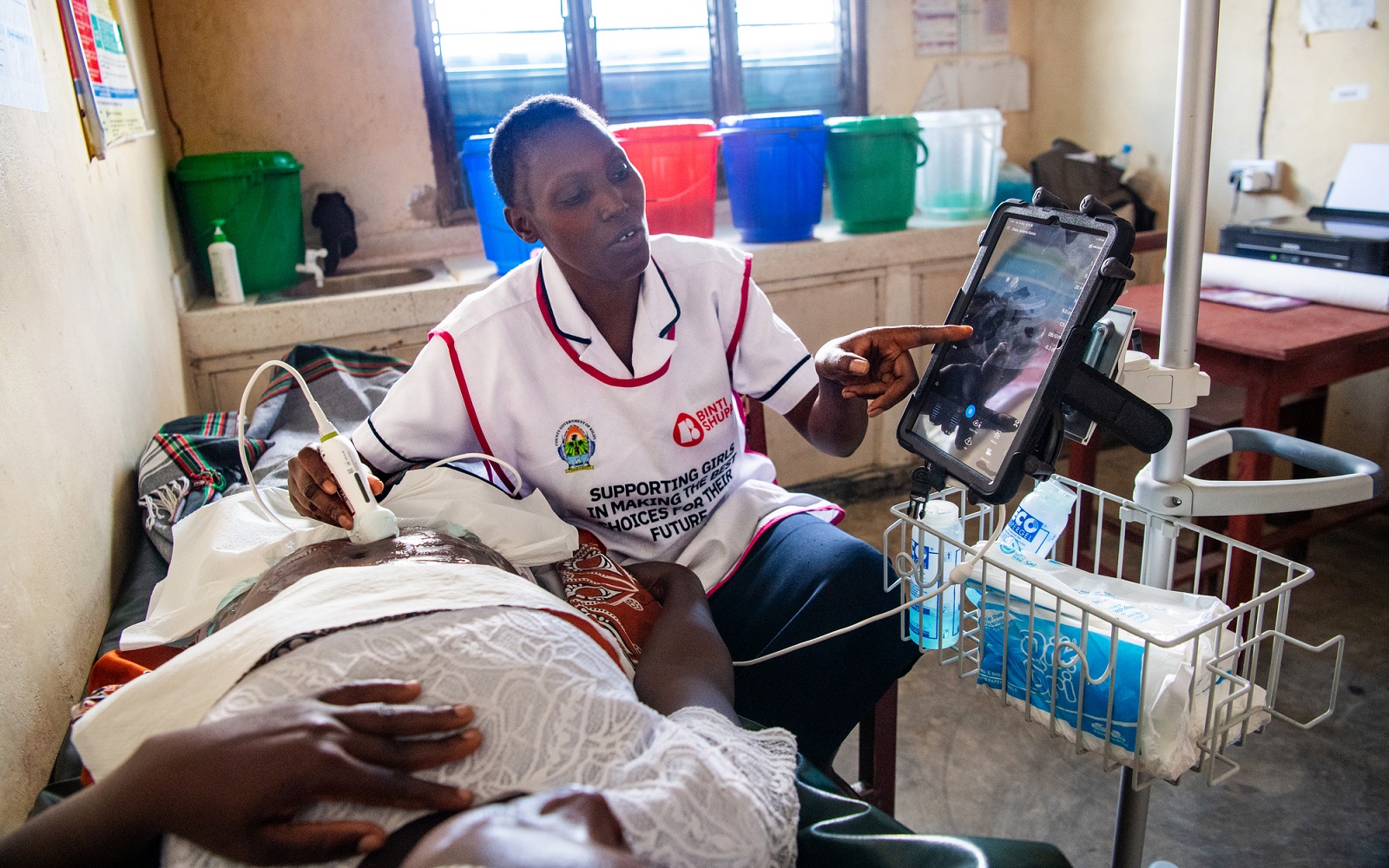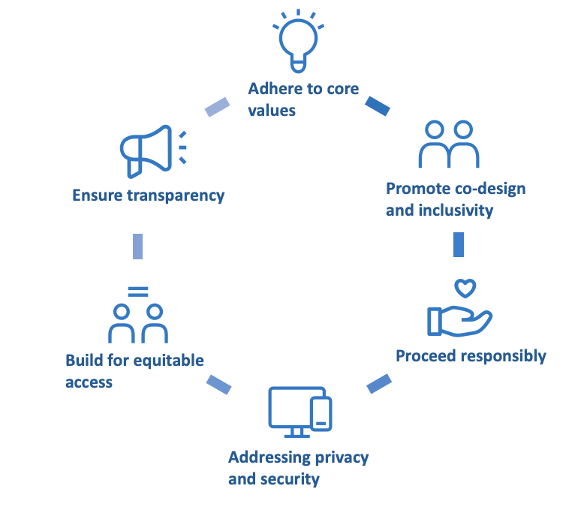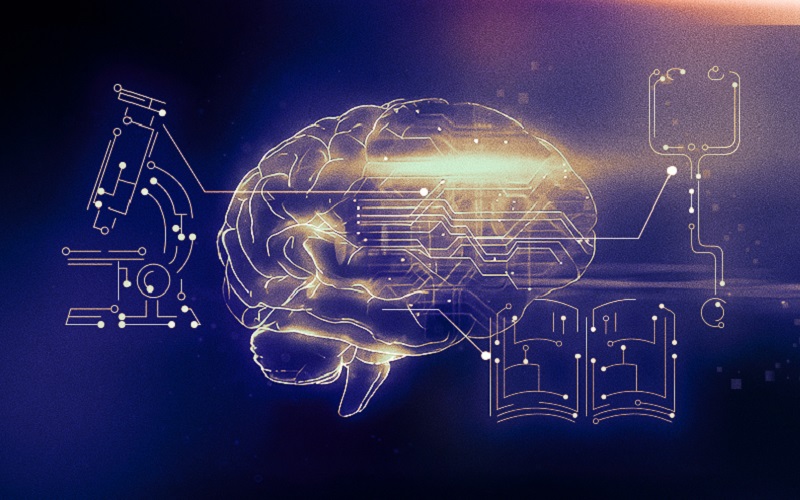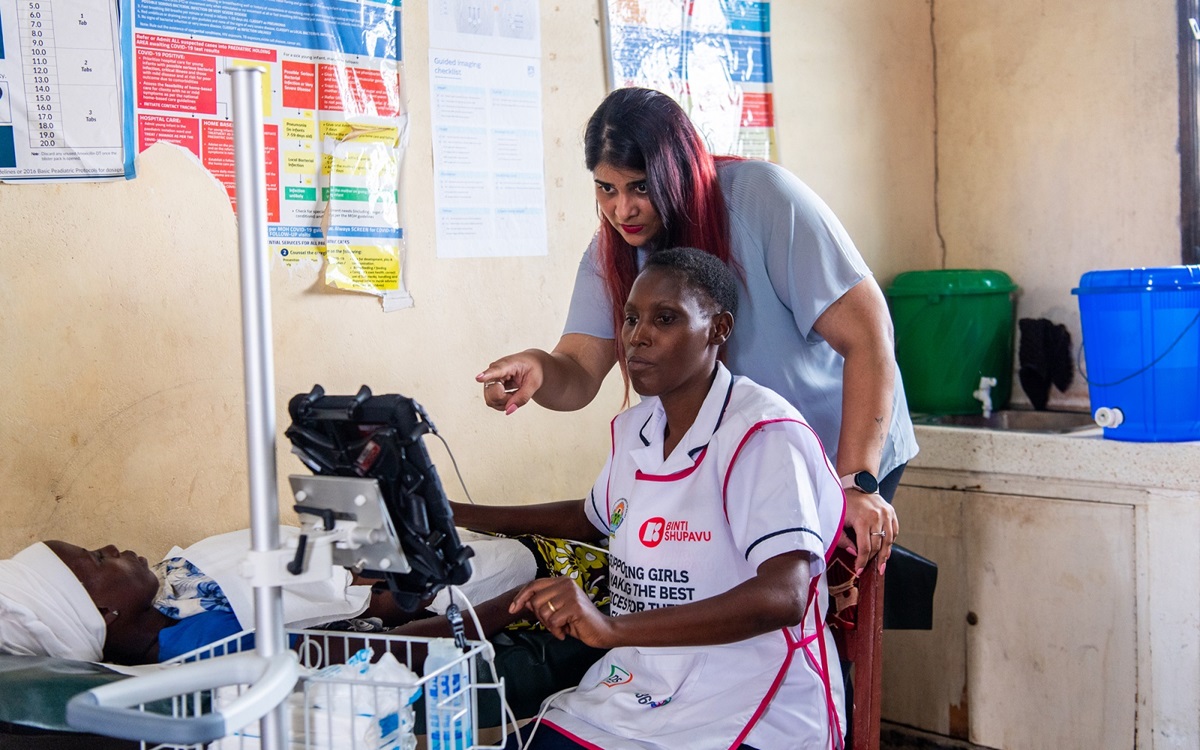AI equity: Ensuring access to AI for all
Cutting-edge AI technologies and approaches are emerging with the potential to revolutionize health and well-being for people around the world.

Overview
Harnessing AI to improve the lives and well-being of vulnerable communities
In coming years, rapid advances in artificial intelligence(AI), will play an increasingly large role in global health and development, with the potential to fundamentally alter the way people communicate, work, learn, and improve their overall health and well-being.
At the foundation, we’ve invested in dozens of applications of AI for global health and development, and our focus on access and equity continues to be fundamental to this work.
We believe that AI solutions must be locally driven and owned, and we’re focused on building an evidence base informed by the communities we serve to ensure AI technology can improve the lives of the world’s most vulnerable people. As we continue to develop our strategy and investments in this area, we remain guided by a core set of principles aligned with our mission — to help create a world where every person has the opportunity to live a healthy, productive life.
Read the core principles guiding our work with AI
The Gates Foundation’s guiding AI principles
“The world needs to make sure that everyone—and not just people who are well-off—benefits from artificial intelligence. Governments and philanthropy will need to play a major role in ensuring that it reduces inequity and doesn’t contribute to it.”
Bill Gates
From The Age of AI Has Begun, Gates Notes
Including low- and middle-income countries to co-create AI tools
As AI technology continues to swiftly evolve and advance, the global community must move with urgency to ensure low- and middle-income countries (LMICs) are included in the co-creation process. Local communities must be given the opportunity to provide their own perspective and cultural context so that they can decide on both 1) their own thresholds for safe usage and 2) the overall utility of AI within their own lives.
Additionally, LMICs must have access to AI tools and approaches. Responsible global use of AI entails a safe, equitable, transparent, reliable, and beneficial process that is adhered to with a high level of accountability. As the world rapidly moves to seize AI’s opportunity, it is imperative to monitor and mitigate the safety, ethical, equity, and reliability dimensions of AI development and use. This will allow the enormous resilience, creativity, and commitment of researchers, scientists, and policymakers to capture the full capability of AI for lasting good.
Learn more about catalyzing equitable AI useSubscribe to The Optimist to get weekly updates on the latest in global health, gender equality, education, and more.
By submitting your email to subscribe, you agree to the Bill & Melinda Gates Foundation's Privacy & Cookies Notice
Creating equitable tools to help people lead healthier, happier lives
These local innovators are creating AI tools with the goal of saving lives and improving well-being in vulnerable communities.
Learn more about the foundation’s AI-related grantsMeet the foundation’s AI Ethics & Safety Advisory Committee
The Gates Foundation’s approach to AI is grounded in safety, ethics, and equity; the principles of ‘equal AI’. Led by Global Health President Trevor Mundel, the AI Ethics & Safety Advisory Committee is comprised of a select group of outside experts. The remit of the Committee is to provide insights on program design, ethical and responsible AI best practices, accountability within the organization and our grantees, and to advise how best to guard against bias and unintended consequences. With a keen focus on local and regional insights, the Committee epitomizes our pledge to ensure that AI advancements echo the voices of communities worldwide, and our dedication to the continuous refinement of the foundation’s AI initiatives.
Read about the committee’s work with AIMore ideas on AI

AI can help close the global health and development gap
via Microsoft
By Trevor Mundel
President of Global Health, Bill & Melinda Gates FoundationPresident of Global Health, Bill & Melinda Gates Foundation

The Age of AI has begun
via Gates Notes
By Bill Gates
Co-chair, Board Member, Bill & Melinda Gates Foundation

Announcing $5 million in Grand Challenges AI grants to spur local innovation for global good
Nearly 50 projects are receiving up to $100,000 to pursue the use of AI to solve problems in global health and development.
By Zameer Brey
Interim Deputy Director, Technology Diffusion, Bill & Melinda Gates Foundation

The risks of AI are real but manageable
via Gates Notes
By Bill Gates
Co-chair, Board Member, Bill & Melinda Gates Foundation